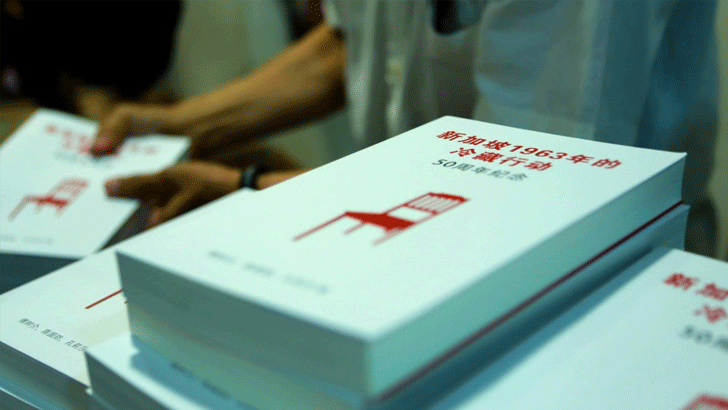Operation Coldstore in Singapore

In the 1950s and 1960s, the British colony of Singapore was ablaze with radicalism. An insurgent workers’ and students’ movement gripped the Island. The demands were independence from Britain, better conditions for the masses, greater political freedom and unity with Malaya.
But on 2 February 1963, after a left-right split in the anti-colonial political party (the PAP) the right wing faction, led by Lee Kuan Yew, arrested the leaders of the radical workers and students and detained them without trial.
After 50 years of bitter silence and long periods of imprisonment, the surviving detainees have gone public, holding an event in Singapore’s Hong Lim Park “speaker’s corner” last year. There they collected the names of deceased and forgotten fighters. The public gathering was a precursor to the launch of the book The 1963 Operation Coldstore in Singapore: Commemoration 50 Years.
The book is a comprehensive account of the lives of the remaining ex-detainees. Virtually all the published histories of Singapore have neglect Operation Coldstore or argued that it was a necessary measure to crush a violent communist insurgency. Right wing authors both within and outside of Singapore have canonised Lee Kuan Yew as a model politician presiding over a model political system where the unnecessary inconvenience of the political left and free speech have been forever obliterated.
This book will not change Singapore. But it will serve as an important historical document . The book’s contributors (former student activists, teachers, political detainees, workers and more) recount their activities before, during and after their arrest and detention.
The book closes with a discussion of the Internal Security Act (ISA), a piece of legislation introduced by the British in 1948 to arrest and imprison without trial any person they considered a member of an outlawed group (read communist or Communist Party sympathiser). The legislation was used to undermine the anti-colonial movement in Singapore and Malaya. Instead of being removed by the elected anti-colonial government the Act was enhanced and broadened. To this day, the Act is used to crush dissent and stifle democracy in Singapore.